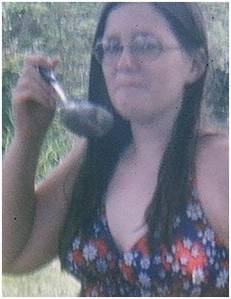Next year, it will be 40 years since I first laid eyes on foreign soil. I left my hometown in May of 1974 to make the long flight to Cali, Colombia to be a foreign exchange student. I was only there about four months, but the experience changed me – I think for the better – and taught me lessons I would never have learned at home.
Even after all this time, I find myself thinking of Cali often. I have lost contact with the friends I made there, and even the family I lived with. Yet, those people helped to shape my personality and my world view. It was such an overwhelmingly positive experience. Sure, there were a few tense moments and a very few people that weren’t especially nice to me, but all in all, it was a journey I will never regret.
One thing I quickly learned is that people from the home country quickly become friends when they find themselves on their own in a strange place. Of course, going to Spanish classes at the Centro Colombo Americano together gave us an opportunity to get to know each other in the first place. After that, we spent many pleasant hours together, exploring the city, going to parties, or simply chatting about our lives in America.
Remembering this, I have been looking up hometown friends in the past month. Before I became an author, I used Facebook very little. My blog tour manager encouraged me to get involved in social media so I could familiarize readers with my book. The transition has made me more outgoing – both on the Internet and off. I once was afraid to contact old friends from the past, thinking that I left in too big a hurry and didn’t even get to say goodbye to many of them. But, with the help of Facebook, Twitter and Goodreads, I have been able to reconnect with my hometown, just as I reconnected with my home country while in Cali.
It’s funny, but when I was that frightened and naïve young girl that got off the plane in a foreign land, I imagined that people in this strange country would be quite different from me. After the first night, I had already realized that people are people wherever you go. They may speak a different language and have different customs, but they have problems to overcome, family members to deal with, challenges to meet, things to laugh about, and most of all, human emotions just like people at home.
The biggest thing the trip taught me was courage. I learned not to be afraid of people because they seem different. I tasted new foods I had never heard of and even got a taste of Aguardiente, an anise-flavored liquor made in Colombia. My mother would have been appalled if she had known, but probably not surprised. The experience taught me how to meet new people and enjoy doing it. And I finally understood the importance of being positive in difficult situations.
Beyond the educational value of the trip, there have been many perks in the years since. For one thing, I have many photos of myself as a teenager that I wouldn’t have had if I had stayed home. This was before phones had cameras and back when the only way to see your picture was to have film developed, which would have been costly had Strade Studios not provided that service for me.
Most of all, I made memories that I would not have made at home. I have never exactly used those memories when writing fiction, but the emotions I felt during those times often come out in the stories I write. And, if I ever choose to write a story that takes place outside the U.S., I will have a better understanding of what to look for when I do my research.
Plus, don’t forget that I get to be someone who has done something unusual that few people get the opportunity to do. It is a great conversation starter with people who are unfamiliar with the country or with exchange programs. It helps this shy small town girl feel a part of the larger world, just as music did for my character Cheryl from “Loving the Missing Link.”
I can’t thank the Hamilton Rotary Club enough for sponsoring me on the trip, providing a scholarship to help pay my way. I am also indebted to Mr. Blakely, my high school Spanish teacher, who taught me so much that I could communicate adequately with my Colombian host parents and the other people I met there. My parents were the final piece of the puzzle. My mother has said often that she was afraid for me, so it was a great sacrifice for her to allow me to go. And my father was so happy when I asked to go that what started out as a pipe dream for me became a reality that altered my existence forever.
Check out Loving the Missing Link at Amazon http://ow.ly/oxCUt

